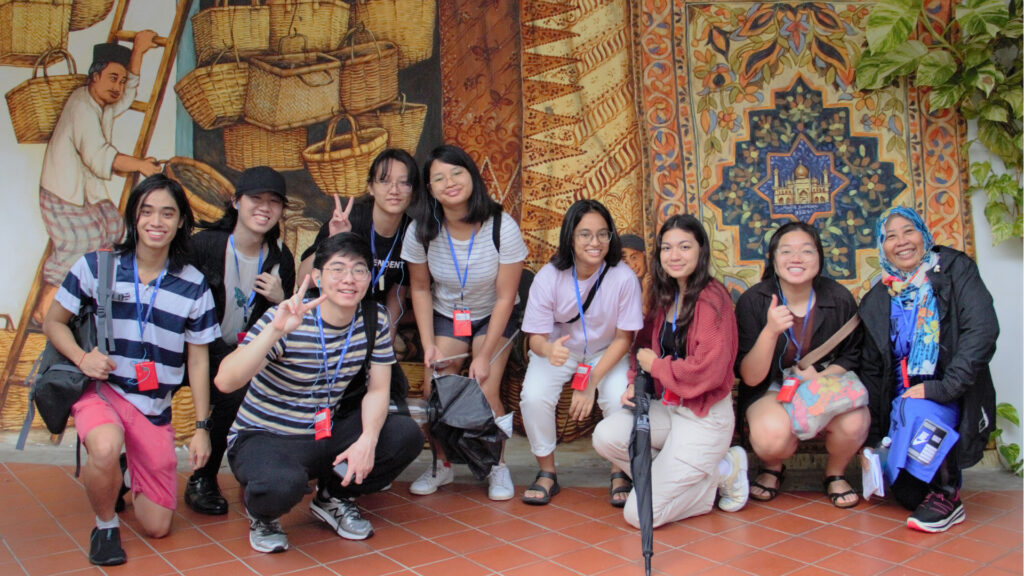Anthropology and the Future
April 28, 2023
IN BRIEF | 3 min read
- Courses in anthropology have been offered at the Department of Sociology and Anthropology since 1965 but now, students can study for a degree in Anthropology at the NUS Faculty of the Arts and Social Sciences. This new degree comes on the back of nearly 60 years of anthropological research and teaching experience.

With growing interest in the study and understanding of the diversity of human experience and cultures, NUS converted its well-established Anthropology courses into a full-fledged major in August 2022.
Courses in anthropology have been offered at the Department of Sociology and Anthropology since 1965 but now, students can study for a degree in Anthropology at the NUS Faculty of the Arts and Social Sciences. This new degree comes on the back of nearly 60 years of anthropological research and teaching experience.
As part as an expanded curriculum to meet the growing interest amongst undergraduates to specialise in anthropology, new anthropology courses such as those on anthropological theories and methods, as well as the anthropologies of technology, media, finance, and even happiness, are also being added.
Anthropology students at NUS will now also have far more opportunities to practise fieldwork ethnography. This highly valued skillset is anthropology’s hallmark approach to learning about the world through sustained and intimate social interactions on the ground, equipping them with analytical and methodological skills to better understand contemporary social issues and problems faced around the world today.
Understanding of Human Culture and Behaviour an Important Key to Solving Increasingly Complex Problems
Associate Professor Kelvin Low, Head of the Department of Sociology and Anthropology at NUS said that the programme will continue to evolve to address the latest developments in the field and emerging trends and areas of study.
With most of the challenges facing societies and economies being increasingly complex and interconnected, Assoc Prof Low said that anthropology has a lot to offer in helping to solve these problems, given its long history of learning from societies and cultures the world over.
“What makes anthropology graduates so flexible is not just their disciplinary knowledge, but also how they have been trained to develop context-rich understanding of the problems at hand - grasping the world from the perspectives of others, being culturally aware and thinking holistically,” he said. “Even businesses are also increasingly tapping on anthropology specialists to tackle the emergence of disruptive technologies to optimise organisational culture, design user-friendly products and interfaces, and even study consumer behaviour in foreign markets.”
Today, anthropology graduates are finding their footing and making their mark in a wide range of industries beyond museums and the heritage industry, into design and consumer research, journalism and media, community work, public administration, and even business consultancy.
Dr Canay Ozden-Schilling, Dr Ivan Kwek and students from the Department of Sociology and Anthropology share more about the study of anthropology, including what makes the programme a fun and unique experience for those looking to effect social change for good across various industries and disciplines.
Citing climate change as an example of a global challenge that is interconnected and multifaceted, Dr Canay Ozden-Schilling, Assistant Professor at the Department of Sociology and Anthropology says, “An anthropology student can address how different groups comprehend it and experience it, from (the) affected communities to policy makers to scientists, and then work towards bridging those perspectives. When you understand the diversity of the human experience, you can come up with solutions that are inclusive and sustainable.”
Senior Lecturer Dr Ivan Kwek who has been teaching anthropology and sociology for over a decade said that students often express surprise at how liberating anthropology can be. “As a science, it is the most humanistic. As humanism, it is the most scientific. In anthropology, we strive to understand the world scientifically – but it is not science as usual. For in anthropology, people matter – and this includes their relationships, emotions, biographies, stories and hopes. What distinguishes anthropology is not just what we learn but also how."
This story first appeared on NUSnews on 28 April 2023.

